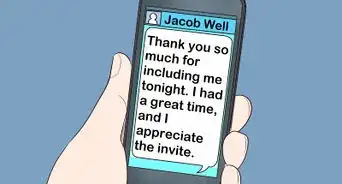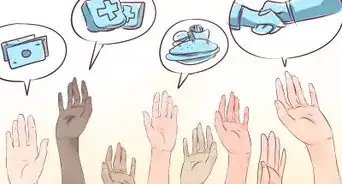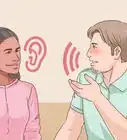This article was co-authored by Allison Broennimann, PhD. Dr. Allison Broennimann is a licensed Clinical Psychologist with a private practice based in the San Francisco Bay Area providing psychotherapy and neuropsychology services. With over a decade of experience, Dr. Broennimann specializes in in-depth psychotherapy to provide solution-focused treatments for anxiety, depression, relationship problems, grief, adjustment problems, traumatic stress, and phase-of-life transitions. And as part of her neuropsychology practice, she integrates depth psychotherapy and cognitive rehabilitation for those recovering after traumatic brain injury. Dr. Broennimann holds a BA in Psychology from the University of California, Santa Cruz, and an MS and Ph.D. in Clinical Psychology from Palo Alto University. She is licensed by the California Board of Psychology and is a member of the American Psychological Association.
This article has been viewed 158,358 times.
Friends are important. They support you, they love you for you are, and they trust you with their deepest secrets. You can show respect for your friends every day by being thoughtful, making time, treating them as you'd like them to treat you. Sometimes, however, even your closest friends may do things that you fundamentally disagree with. If you want to restore the friendship, you'll need to find a way to respect their right to individuality.
Steps
Supporting Your Friends
-
1Be supportive. Never stop believing in your friends, even when they've given up. Don't be unrealistic – but try to see the best in them, and try to help them see the best in themselves. Encourage them when you know that they need the extra push.
- Be a positive influence. Don't support your friend in doing things that you know are a bad idea. On the other hand, respect your friend's right to learn from his or her mistakes.
- Help them study for tests, but don't tutor them like a teacher. If you tutor your friend too much, they might get irritated; they may believe that you think that they know nothing. Only help them out if they ask for advice, and it may make the two of you closer.
-
2Never forget your friend's birthday. Write him or her a thoughtful note, and make or buy a gift that feels personal. This shows that you care, and that you want the friendship to last a long time. Odds are, your friend will be deeply grateful.Advertisement
-
3Listen to them. Listen to their problems, their fears, their dreams, their joys. Put aside your own problems, and take the time to fix your full attention upon what your friend needs. Offer advice, if it seems appropriate, but try to just let them talk. Listening is one of the most important things that you can do for a friendship.[1] [2]
- Listen to all of your friends when they need to talk. If you prove that you are a thoughtful and trustworthy listener, your friends may confide most of their problems in you.
- Do not interrupt them when they're speaking. Interruption is a sign of disrespect.
-
4Never force your friends to talk to you when they make it clear they don't want to. Don't take this personally. Some people are simply more reserved, and are the type to handle their problems themselves. This doesn't mean they have anything against you, or don't value you as a friend. It means talking about certain topics might make them uncomfortable, and you should always respect that. Pressuring them to speak to you will only make them not want to come to you with things in the future.
Making Friends Feel Valued
-
1Show gratitude. Say "thank you" whenever your friends do you a favor or give you something. Consider telling your friends how much they mean to you. Appreciate the fact that another human being went out of his or her way to do something specifically for you – no matter how large or small that thing may seem.[3]
- Repay friendship with friendship. Help your friends out without them having to ask. Show your gratitude by responding in kind.
- Share your gratitude. You don't need to wait for a special occasion to tell your friend how much he or she means to you. Say, "This might sound random, but I want you to know what an awesome friend you are. You're always there for me when I need someone to talk to, and you have the greatest sense of humor. Thank you."
-
2Find hobbies that you have in common.[4] Music, for instance: listen to something new that nobody else listens to in your area, such as any international music. If you do sports, or anything active or creative, ask your friends if they'd like to try it out – anything from rock climbing to painting to video games. Listen to your friends talk about what they like, and ask if you can have a go. Not only will this shared experience help you form a closer bond, but it will make your friends feel as though their preferences are worthy.
- Consider trying something at least once before you dismiss it. Even if you don't like it, try to understand why your friend enjoys doing it. You don't need to like everything that they like – but you should at least respect the fact that they like it.
-
3Respect their feelings. When your friends express that something hurts their feelings, or makes them uncomfortable, realize it isn't funny. If they go out of your way to point out that your behavior affects them in a negative way, it's time to stop. Your friends feelings are more important than what you find personally entertaining. Just because something doesn't seem like a "big deal" to you, doesn't mean it isn't to them. This doesn't make them "too sensitive", or "over-emotional".
Respecting Differences
-
1Refrain from judgement. Unless something your friend is doing is hurting themselves or others, there is no reason to give an unwanted, negative opinion. Putting undue pressure and judgement on them will make them start to dislike your presence. Try to be supportive and non-judgmental, even if you deeply disagree with something that they did. Show your respect by letting the friendship stand stronger than any one mistake.
- If your friend messes up, forgive them – even if he or she, say, forgets your birthday. If they don't study for an important test, help them out.
- If your friend embarrasses him/herself in front of their crush, or in front of a group of people that they like, then help them out. Tell them that people will forget about it. Make sure you don't constantly talk about what happened, and just drop it as soon as it happens.
-
2Give respectful advice. Warn your friends if they make a decision that seems like a bad idea. If you know someone well, then your opinion is valuable. However, your responsibility as a friend does not include depriving someone of the opportunity to make mistakes and learn from them. Make sure that you respect your friends' right to make their own choices. If they need to do something, then let them do it.[5]
-
3Talk about your disagreement. Arrange a time when you can interact one-on-one. Then, if you're sure that they are okay with being alone with you, try easing into a friendly conversation about where you think things went wrong. Humble yourself for a few minutes, and try to speak with your friend as though everything were normal.
- Do not accuse. If you want to restore your friendship, you'll need to let go of your anger. Rash words and unfounded accusations may cause the person to put up a defensive wall. However, it's reasonable to bring up an offense if it directly caused the falling-out.
-
4Learn the boundaries. If a friend feels like he or she is being held back, he/she might react by creating distance or fading from your life in an attempt to get some space. This might hurt, but sometimes people will do this without even realizing it. Respect their journey, and give them some space. Allow them to spend time with friends other than you. They can still be your friend, even though they want to hang out with other people too.[6]
Expert Q&A
Did you know you can get expert answers for this article?
Unlock expert answers by supporting wikiHow
-
QuestionHow do I stop driving away my friends?
 Allison Broennimann, PhDDr. Allison Broennimann is a licensed Clinical Psychologist with a private practice based in the San Francisco Bay Area providing psychotherapy and neuropsychology services. With over a decade of experience, Dr. Broennimann specializes in in-depth psychotherapy to provide solution-focused treatments for anxiety, depression, relationship problems, grief, adjustment problems, traumatic stress, and phase-of-life transitions. And as part of her neuropsychology practice, she integrates depth psychotherapy and cognitive rehabilitation for those recovering after traumatic brain injury. Dr. Broennimann holds a BA in Psychology from the University of California, Santa Cruz, and an MS and Ph.D. in Clinical Psychology from Palo Alto University. She is licensed by the California Board of Psychology and is a member of the American Psychological Association.
Allison Broennimann, PhDDr. Allison Broennimann is a licensed Clinical Psychologist with a private practice based in the San Francisco Bay Area providing psychotherapy and neuropsychology services. With over a decade of experience, Dr. Broennimann specializes in in-depth psychotherapy to provide solution-focused treatments for anxiety, depression, relationship problems, grief, adjustment problems, traumatic stress, and phase-of-life transitions. And as part of her neuropsychology practice, she integrates depth psychotherapy and cognitive rehabilitation for those recovering after traumatic brain injury. Dr. Broennimann holds a BA in Psychology from the University of California, Santa Cruz, and an MS and Ph.D. in Clinical Psychology from Palo Alto University. She is licensed by the California Board of Psychology and is a member of the American Psychological Association.
Clinical Psychologist A lot of times we come into relationships with so many expectations, and we might overshare and put a lot of pressure on relationships. It's hard to have a nourishing friendship without taking the time to build it. And so, a lot of times people will overshare and get overly invested. The normal first phase of friendship is the beginning where you're focused on all your commonalities and the things that you have in common and different reference points. And then a lot of times, once you start to hit the differences, that's where people start getting into power struggles and that's where people might be disappointed and hit the limits of their expectations. So really taking the time to get to know people and build the relationship in a healthy way can help ensure you don't run into problems with your friends down the road.
A lot of times we come into relationships with so many expectations, and we might overshare and put a lot of pressure on relationships. It's hard to have a nourishing friendship without taking the time to build it. And so, a lot of times people will overshare and get overly invested. The normal first phase of friendship is the beginning where you're focused on all your commonalities and the things that you have in common and different reference points. And then a lot of times, once you start to hit the differences, that's where people start getting into power struggles and that's where people might be disappointed and hit the limits of their expectations. So really taking the time to get to know people and build the relationship in a healthy way can help ensure you don't run into problems with your friends down the road.
Warnings
- Don't be friends with people that make you feel bad about yourself, or sad, or angry. This will make your life a living hell.⧼thumbs_response⧽
- Don't correct them on things all the time. They'll get sick of it and will end up not listening to you.⧼thumbs_response⧽
- Don't let your friends take advantage of your kindness. If they've forgotten a pen for school, then let them borrow one if you have one – but if they come in the next four days without a pen, and keep constantly asking for one, then put your foot down.⧼thumbs_response⧽
References
- ↑ http://www.lifehack.org/articles/communication/21-ways-you-can-earn-the-respect-others.html
- ↑ Allison Broennimann, PhD. Clinical Psychologist. Expert Interview. 29 January 2021.
- ↑ http://www.afraidtoask.com/rules-of-friendship-respect/
- ↑ Allison Broennimann, PhD. Clinical Psychologist. Expert Interview. 29 January 2021.
- ↑ http://young.scot/information/relationships/respecting-your-friends-opinions/
- ↑ https://graceformyheart.wordpress.com/2012/09/19/friends-respect-your-boundaries/
About This Article
The best way to respect your friends is to appreciate them, which you can do by regularly letting them know how important they are to you. For example, tell them how grateful you are for their friendship. Another caring way to show respect is to notice their thoughtfulness and kindness by saying “thank you” whenever your friends help you out. Similarly, be supportive of your friends’ different views, even if you don’t always agree because this shows you value what is important to them. For instance, offer to go with them to book club one night instead of always insisting they go out with you. And no matter what troubles your friends are going through, you can show you really care by listening to your friends without judgment and offering advice only when they ask you for it. Keep reading for more tips on working through friendship disagreements respectfully.
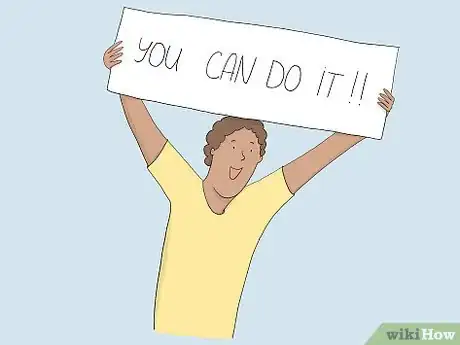
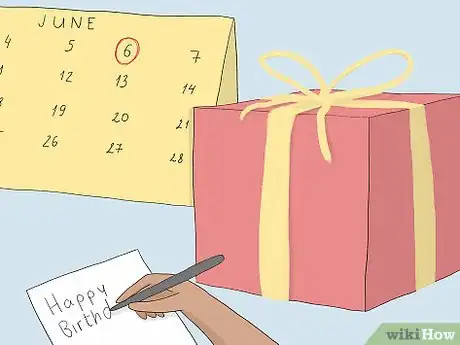


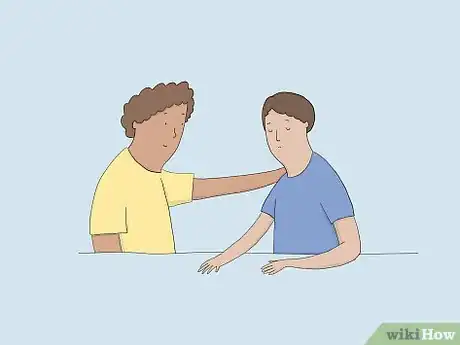

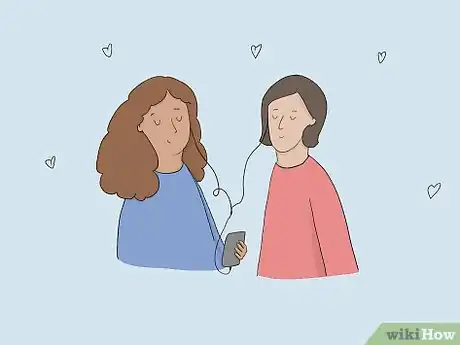

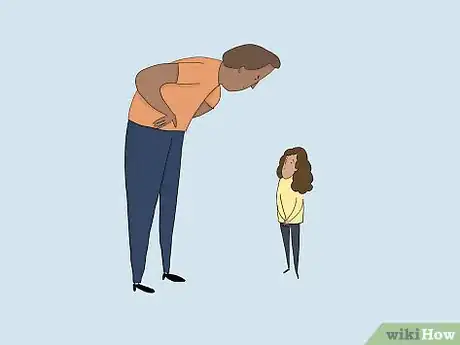
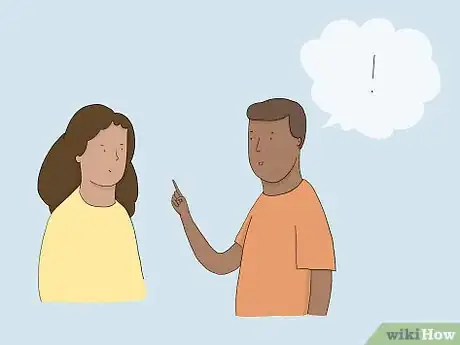
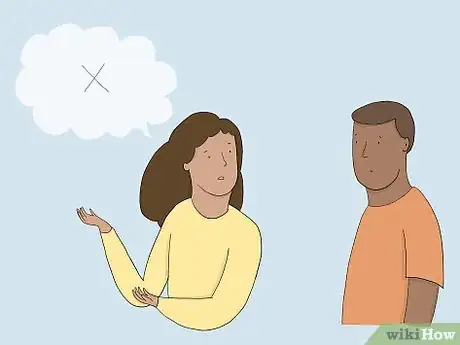
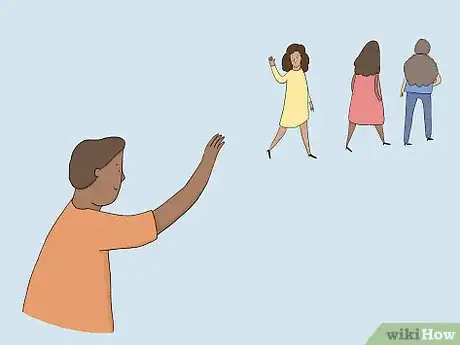

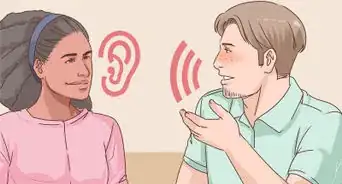


-Step-15-Version-2.webp)


